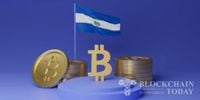El Salvador, the first country in the world to adopt Bitcoin as legal tender, is once again in the spotlight as it appears to be increasing its Bitcoin (BTC) holdings through unofficial channels, despite a recent agreement with the International Monetary Fund (IMF) that stipulates a halt on such acquisitions. As of March 9, 2025, the Central American nation’s Bitcoin reserves had reached approximately 6,111 BTC, valued at around $544 million USD (approximately 72 billion yen) at current market rates.
In February 2025, El Salvador reached an agreement with the IMF to secure an Extended Fund Facility (EFF) of $1.4 billion USD (approximately 200.2 billion yen). This financing agreement came after nearly four years of negotiations and included conditions that Bitcoin acceptance would be optional for private companies and that the government would cease purchasing crypto assets using public funds. The IMF made it clear in its announcement that it would prohibit any voluntary accumulation of Bitcoin by the public sector.
However, recent blockchain data analysis reveals that El Salvador’s Bitcoin holdings have continued to grow since the agreement was reached. In fact, since March 1, 2025, the country has reportedly purchased an additional 13 BTC, maintaining a consistent acquisition rate of about 1 BTC per day. President Najib Bukele has expressed a firm commitment to continue these purchases, dismissing earlier suggestions that the buying spree might end in April, June, or December.
According to government officials, these purchases are likely funded not by public money but rather through reinvested profits from past cryptocurrency investments and private funds. The IMF, for its part, has stated that as long as El Salvador avoids using public funds, it technically remains in compliance with the agreement.
Since the IMF announced its agreement, the country has acquired 12 BTC, and current government statements indicate that El Salvador now holds approximately $550 million USD worth of Bitcoin. This accumulation is being conducted via the National Bitcoin Office, which suggests that the nation has no intention of abandoning its Bitcoin strategy.
El Salvador's approach is particularly noteworthy as many countries tend to comply with IMF conditions. Earlier this year, the nation amended its laws to align with IMF stipulations, yet it continues to purchase Bitcoin, defying expectations regarding its future policy direction.
Recent blockchain activity indicates that the Bitcoin Office is maintaining a strategy of accumulating approximately 1 BTC daily through non-administrative channels. This approach, while technically adhering to the letter of the agreement by not directly using public funds, could be seen as contrary to the spirit of the agreement, raising questions about the future of El Salvador's relationship with the IMF.
On April 27, 2025, it was reported that El Salvador acquired an additional 7 BTC (approximately $650,000 USD) in the week leading up to that date. When questioned about the country’s Bitcoin investments, Rodrigo Valdes, the head of the IMF’s Western Hemisphere Department, reaffirmed that El Salvador is adhering to its commitment to halt new Bitcoin acquisitions at the government level. Valdes stated at a press conference on April 26, 2025, "We can confirm that El Salvador continues to adhere to the performance standard that the entire fiscal sector does not additionally accumulate Bitcoin."
He emphasized that the program is not solely focused on Bitcoin but encompasses broader structural reforms centered around governance and transparency.
El Salvador's strategy is drawing attention not only for its boldness but also for the implications it holds for other nations considering similar paths. Andy Lian, a blockchain government advisor, pointed out that the IMF’s agreement could be flexibly interpreted to allow Bitcoin purchases through non-governmental entities. He remarked, "The IMF’s flexible interpretation means acquisitions by non-public sector entities or reclassified assets, which technically does not violate the agreement."
This alternative approach allows El Salvador to maintain its image as a pro-Bitcoin nation while simultaneously securing essential IMF funds needed to address its unsustainable public debt and limited foreign exchange reserves. Lian noted that the situation highlights the growing tension between financial innovation and traditional economic policies.
Moreover, El Salvador's case serves as a valuable lesson for other countries exploring the adoption of virtual currencies. It underscores the necessity for robust regulatory frameworks and the institutional capacity of nations to navigate international financial pressures effectively.
As the global financial community watches closely, the unfolding situation in El Salvador raises critical questions about the balance between innovative financial strategies and adherence to international agreements. The future of Bitcoin in El Salvador remains uncertain, but the government's continued investment in the cryptocurrency suggests a commitment to its controversial strategy, despite the risks involved.




